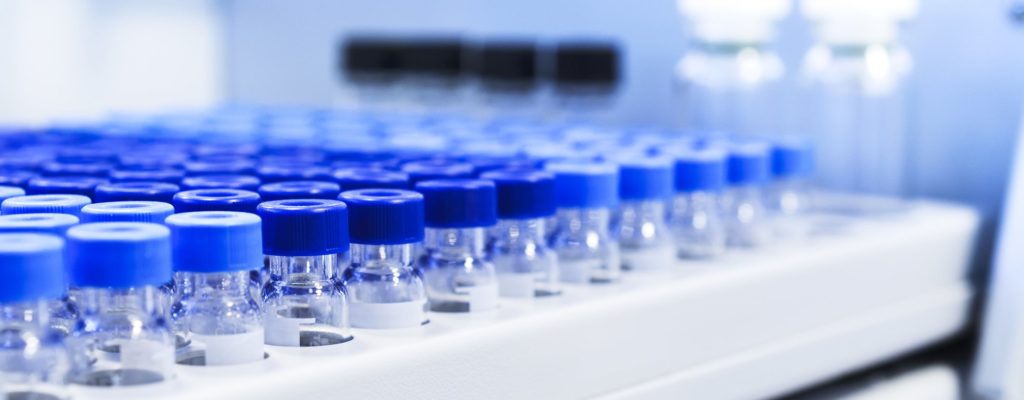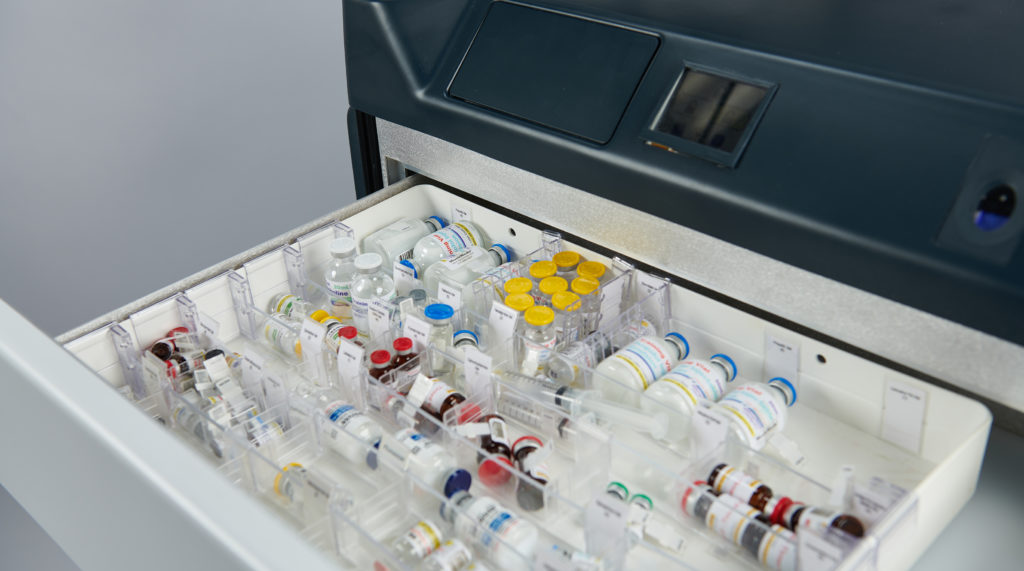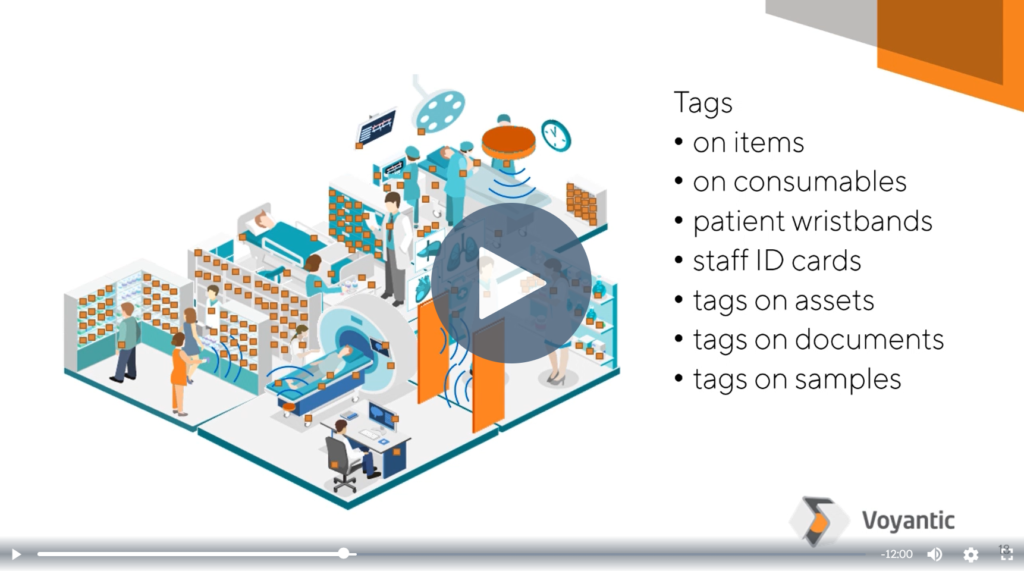Healthcare Organizations Gain Benefits from RAIN RFID Technology
Hospitals and healthcare facilities are on the digitalization path, levering data in clinical decision-making and operations. Some are further down the path than others.

There are many technologies used in digital transformation but when it comes to picking a technology to provide digital identities to items and people, RAIN RFID has unique benefits. A typical RAIN RFID system consists of passive RFID tags that are attached to items or people, hand-held or fixed readers, and software that processes the data from the tagged items. What makes the technology great for tracking millions of items is that RAIN RFID tags are relatively low-cost, just a few cents per tag, they can be read without a line of sight (unlike barcodes) from meters away, and hundreds of tags can be read within a few seconds.
RAIN RFID technology is being used in healthcare and pharmaceutical industries for applications designed to enable and improve
- inventory and supply chain management,
- patient safety,
- patient flow,
- workflows,
- authentication,
- asset management,
- and to automate various processes.
Beds, surgical instruments, drugs, patients, mobile medical devices, etc., all can be tagged and tracked using RAIN RFID.
Improved Operations
One of the primary benefits of RAIN RFID technology is improved inventory and supply chain management. According to Harward Business Review, hospitals in the US spent an average of $11.9 million each on medical and surgical supplies in 2018, accounting for up to one-third of total operating expenses at some[1]. Tagging pharmaceutical items with RFID, for example, enables automating the inventory tracking and ordering of the items which can significantly reduce the management and waste-related costs for hospital pharmaceuticals.
“Transforming the supply chain digitally can lead up to a 50% reduction in process costs and an increase in revenue by 20%.”[2]
The Pharmaceutical industry also uses RAIN RFID to track drugs from manufacturing to distribution, ensuring that medications are properly handled and stored. For example, Fresenius Kabi, a global healthcare company specializing in medicines and technologies for infusion, transfusion and clinical nutrition, has utilized RFID technology for drug labeling in the US market since 2020.[3]

RFID Enabled Smart Cabinets
Hospitals may have thousands of medications tagged with RAIN RFID. Last year in the US, over 600 hospitals employed approximately 50 million RAIN RFID tags to manage anesthesia medication.
In hospitals, RFID-enabled cabinets are used to validate medication tray formularies. These formularies, ranging from 60 to 176 items, describe combinations of anesthesia medication required for various operations and procedures. A tray of medicines can be put into a small cabinet and the medications can quickly be verified (in less than 10 seconds) for the GS1 Company Prefix, NDC (national drug code), serial number, lot number, and expiry date. Then, the tray can be wrapped and sent to the OR with 100% confidence in the tray contents and verified usability. When an operation is concluded in the OR, the tray can then be rescanned for checking what has been used.
Scanning barcodes one by one in hospitals is expensive, slow, and sometimes inaccurate when scanning dozens of items in (or out of) sequence. RAIN RFID provides an unquestionable advantage over barcodes in terms of speed and accuracy.

Improved Care
Another application for RFID technology is to optimize workflows and processes by gaining visibility into how equipment, patients, and materials flow in the day-to-day operation of a hospital. The Mayo Clinic’s Saint Marys Hospital in Rochester, Minnesota, uses RFID technology in a system that reduces the time that staff members spend finding equipment and each other, allowing them to spend more time on patient care. The system informs them when a colleague is attending to a patient and shouldn’t be interrupted. Similarly, family members are now directed more quickly to patients.[4]
Another application is to utilize RFID for medical records management. Belfast Health and Social Care Trust, the largest health and social care Trust in the United Kingdom that manages around 4 million medical records, implemented RFID to replace the time-consuming barcode scanning process of the records in storage facilities.[5]
RFID Standards for Healthcare
Using the correct RFID data standard enables information availability throughout the healthcare supply chain.
GS1 is a global not-for-profit organization that develops information standards for supply chain visibility and efficiency. GS1 has published a guideline for using RFID in Healthcare Manufacturing.
A standard for encoding and decoding RFID data in the healthcare industry is required to ensure the tagged item data is “readable” by different organizations throughout the supply chain, from manufacturing and logistics to healthcare facilities and pharmacies. The GS1 guideline provides the necessary information for healthcare manufacturers to encode RFID tags using GS1’s Electronic Product Code (EPC®) schemes outlined in the EPC Tag Data Standard (TDS).
The guidline includes:
- How to encode GS1 EPC-enabled RFID tags for automatic data capture to be utilized across the healthcare supply chain
- What supply chain participants should expect when receiving a tagged product that is GS1 EPC enabled
Expert Help is Available
Industry associations like RAIN RFID Alliance and GS1 have published numerous resources and case studies on the use of RAIN RFID technology in the healthcare and pharmaceutical industries. The Axia Institute provides vendor-independent RAIN RFID testing services such as services for selecting and validating tags and tag placement for medicines and medical devices.
These organizations provide more information on the benefits and applications of RAIN RFID technology, as well as assistance in RAIN RFID implementations:
- The Axia Institute: https://lab.axia.msu.edu/
- RAIN RFID Alliance: https://www.rainrfid.org/applications/healthcare/
- GS1 Healthcare: https://www.gs1.org/industries/healthcare
- RFID Journal: https://www.rfidjournal.com/

WEBINAR: A Roadmap for tagging medical devices with RAIN RFID
Learn how and why RAIN RFID has been added to medical instruments, what are the use cases, and where they see the value of RAIN RFID solutions.
VIDEO: Testing the Performance of a RAIN RFID Tagged Item
This video shows how RF performance testing is done for a tagged blood pressure meter.
VIDEO: Characterizing RFID tag population with Tagformance Pro
This video shows the tag characterization process of RAIN RFID tags population.

PRESENTATION: The Coexistence of Multiple RAIN RFID Systems in a Hospital
Watch this presentation from a virtual RAIN RFID conference to get an overview of different applications of RAIN RFID technology in hospitals.
[1] https://hbr.org/2022/01/how-digital-transformation-can-improve-hospitals-operational-decisions
[2] https://digitalsc.mit.edu/
[3] “Driving Innovation and Digitalization in Healthcare markets”
https://www.fresenius-kabi.com/responsibilities/products-and-services
[4] https://hbr.org/2015/12/how-rfid-technology-improves-hospital-care
[5] https://www.kathrein-solutions.com/files/2017_09_cs_kinsetsu_gb_medical-records-managed-intelligently.pdf